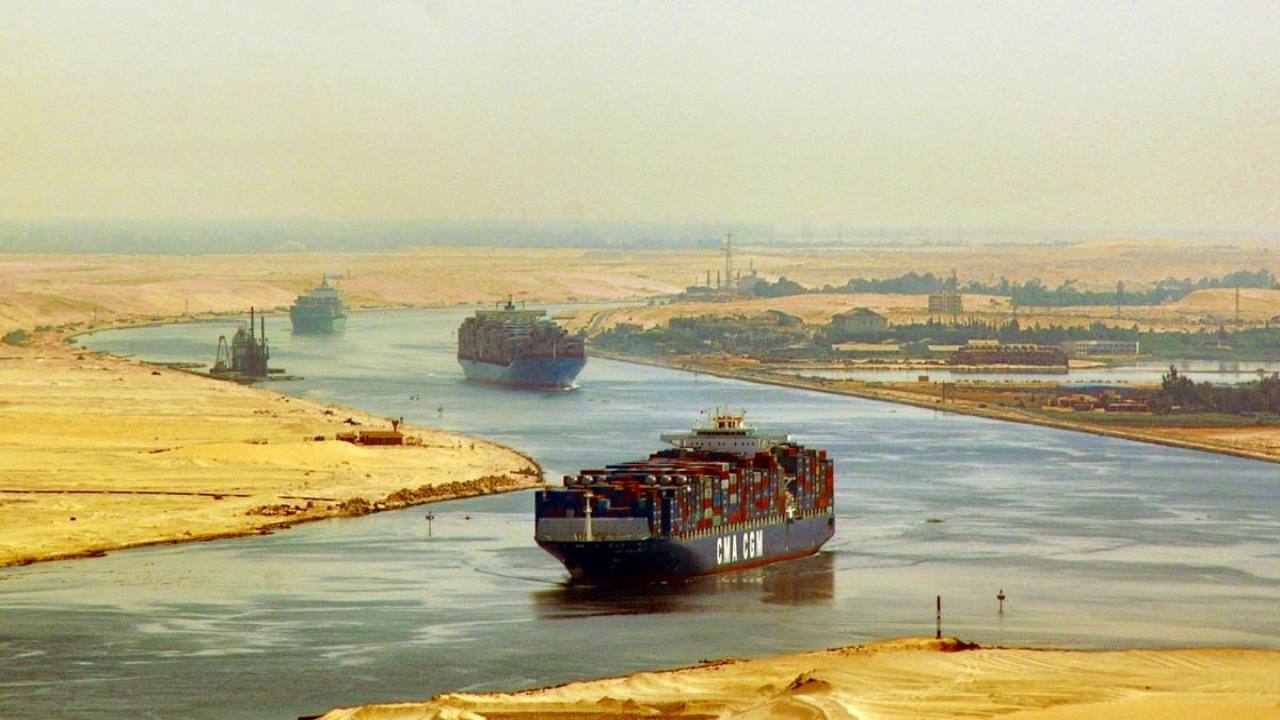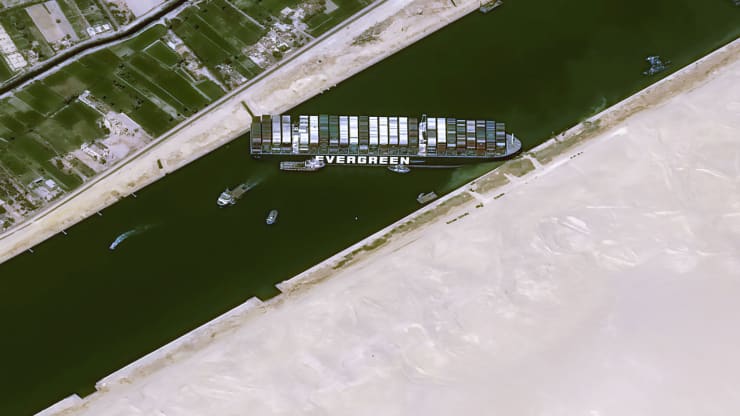The 193-km waterway Suez Canal which connects Asia and Europe is so important to world trade that world powers have fought over it since it was completed in 1869.
On March 23rd, global trade came to the halt when a container ship got stuck in the Suez canal. The artificial sea-level waterway which is located in Egypt was built between 1859 and 1869 linking the Mediterranean Sea and the Red Sea. As the shortest route between the Atlantic Ocean and lands around the Indian and western Pacific Oceans, the canal is one of the busiest waterways in the world, negating the need to navigate around the Cape of Good Hope in Africa and thus cutting distances by up to 7,000 km.
Importance of Suez Canal
About 12% of world trade passes through the canal each year, everything from crude oil to grains to instant coffee. Without Suez, a supertanker carrying Mideast crude oil to Europe would have to travel an extra 6,000 miles around Africa’s Cape of Good Hope, adding some $300,000 in fuel costs. Because it has no locks, it can even handle aircraft carriers.
The canal’s location makes it a key link for shipping crude oil and other hydrocarbons from countries such as Saudi Arabia to Europe and North America. Among other goods, 54.1 million tons of cereal passed through the canal, 53.5 million tons of ores and metals, and 35.4 million tons of coal and coke in 2019.
Suez Canal’s History
In 1858, the Universal Suez Ship Canal Company was tasked to construct and operate the canal for 99 years, after which rights would be handed to the Egyptian government. Despite facing multiple problems ranging from financial difficulties and attempts by the British and Turks to halt construction, the canal was opened for international navigation in 1869.
The French and British held most of the shares in the canal company. The British used their position to sustain their maritime and colonial interests by maintaining a defensive force along the Suez Canal Zone as part of a 1936 treaty. In 1954, facing pressure from Egyptian nationalists, the two countries signed a seven-year treaty that led to the withdrawal of British troops.
Impact of blockade
The impact of the blockade has been massive for the global economy. One of the world’s largest container ships, The Ever Given is still wedged in the canal and the economic effects of this can be seen in the market.
White House Press Secretary Jen Psaki said Friday that the U.S. is monitoring the situation closely. She said “some potential impacts on energy markets.”
Oil prices jumped on Friday, amid speculation that dislodging the ship could take weeks.



















